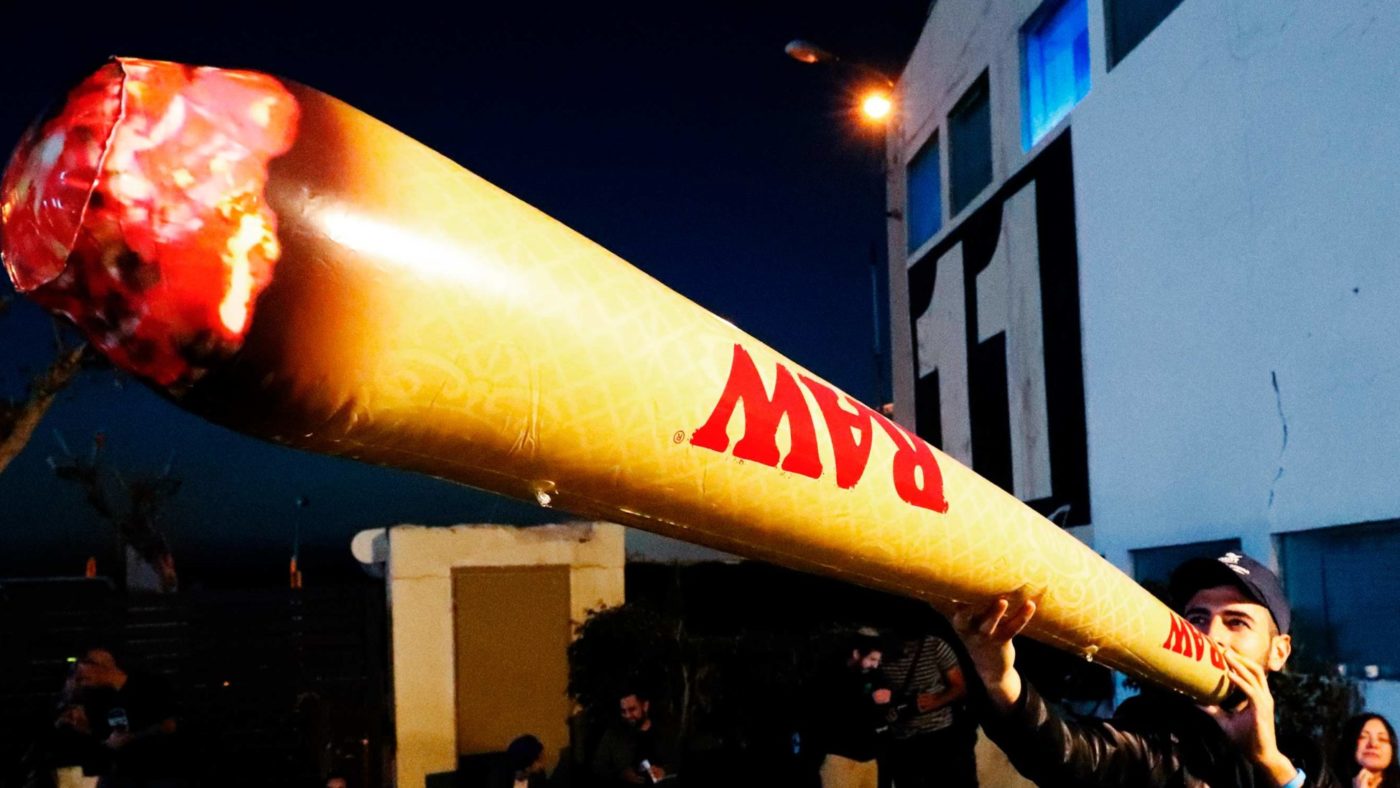The legal status of pot is not exactly a salient issue in Western liberal democratic electoral discourse. Consequently there has been a shared experience in many countries where it remains illegal but is tolerated and policing is light touch. This is certainly the case in Israel where according to a 2017 study 27 per cent of Israelis aged 18-65 used marijuana, the highest proportion in the world, and yet it remains illegal, with exceptions for medical use.
Few governments or parties in the Western world have ever seen it as an issue worth investing political capital in. The peculiarities of Israel’s political system, however, combined with the idiosyncrasies – perhaps “weirdness” is more apt – of the pro-legalisation Zehut party, have suddenly turned this into an issue upon which the upcoming election may turn.
Zehut has been an irrelevance in Israeli politics ever since its formation by former Likudnik Moshe Feiglin in 2015. On the conventional Israeli political spectrum, i.e. a party’s stance on security and vis-a-vis the Palestinians, it is right-wing. It supports the concept of the Greater Land of Israel by virtue of Divine right, and wants to cancel the Oslo Agreement, applying Israeli sovereignty over “the entire area that Israel controls”, a position certainly to the right of Likud and even some other smaller right-wing parties.
But it is also libertarian, and as a consequence it is passionately in favour of the full legalisation of marijuana. The party’s platform calls for the creation of a legal infrastructure for cannabis consumption and trade similar to what exists with alcohol. Other libertarian positions proving popular include its opposition to an electronic database and the curtailing of the power of the Rabbinate, although the party should in no way be seen as anti-religion. Indeed, Feiglin’s belief in Israeli sovereignty from the Jordan to the Mediterranean derives from his religious beliefs.
For whatever reason, it has suddenly and unexpectedly seen a burst in popularity, with polls now predicting it could win as many as six or seven seats in the Knesset.
As a consequence of its position on the Palestinians, polls suggest it is taking votes from the right-wing parties, with United Right and New Right seeing a small decline in and Yisrael Beiteinu often disappearing from the equation entirely. It is telling that Benjamin Netanyahu has now begun to speak of possible cannabis legalisation.
None of this would matter, of course, if Zehut had pledged itself to Netanyahu. In this case, seats won from other right-wing parties would be a zero-sum game, having little to no impact on Bibi’s chances of forming a government. A lost seat or two from Likud, United Right or New Right would be made up from the Zehut seats.
But Zehut has not pledged itself to Bibi – the only right-wing party not to do so. Political parties will inevitably hold positions on a whole range of issues. But they prioritise. This might be based on principle, pragmatism, or perception of electoral attractiveness. On this front, Zehut appear to view legal pot as a hill worth dying on. Feiglin has indicated as much, stating that he will not join a coalition which isn’t pledged to legalising cannabis. He has been campaigning on this for years.
This is where Bibi’s problems may emerge: while Zehut takes votes from right-wing parties, reducing their seat count, if former general Benny Gantz is the beneficiary then this zero-sum game between right-wing parties suddenly turns into a negative sum game.
Bibi’s new-found interest in legal cannabis is almost certainly insincere. As Anshel Pfeffer has written, his patron Dr. Miriam Adelson has waged a lifelong crusade against all drugs. Netanyahu also has the baggage of a fractious personal history with Feiglin.
Should Gantz’s Blue and White alliance emerge victorious, however, he would be seeking a coalition with Labor and possibly Meretz – hardly parties that are going to have a problem with legalising marijuana. Even if he elects to form a Government with right-wing or ultra-Orthodox parties, he won’t have the same impediment to pursuing a policy of legalised pot. If Zehut really do view this issue as their priority, but continue to win votes from right-wing parties, then arguably for the first time this election a serious shift between the electoral blocs may emerge, as opposed to the shifts solely taking place within blocs.
The issues in this election should be numerous; corruption, Hamas, Hezbollah, Iran, cost of living, Gaza.
Instead of the above issues, this election is instead defined as “to Bibi or not to Bibi”, with Netanyahu’s suitability for the role the only identifiable talking point. Yet it is possible that even this issue might not ultimately be decisive in a tight race. What will? Pass the light.
CapX depends on the generosity of its readers. If you value what we do, please consider making a donation.


